Time To Dump Daylight Saving Time
Daylight Savings Time ends early on Sunday. Perhaps it should never return.
It’s that time of year again, folks.
At 2:00am on Sunday morning the United States will once again engage in the biannual tradition of changing it clocks, this time dropping back an hour to mark the end of Daylight Saving Time and the beginning of Standard Time, which we’ll stay on until March 9th, 2014. It’s been this way or many years now, indeed it wasn’t long ago that Congress changed the law so that the period during which we were under Daylight Saving Time was extended by about two weeks, but it’s still one of those things that seems hard to justify when you look at the evidence. As I noted back in 2012, there’s a good chance that all this time changing may be bad for your health, and there’s no evidence that it results in the reduced energy use that its proponents claim that it does. In fact, all that clock changing seems to actually cost us some $1.7 billion per year in opportunity costs. In its new issue, National Geographic argues that we should do away with the idea of Daylight Saving Time altogether and cites yet another potential problem:
Till Roenneberg, a chronobiologist at Ludwig-Maximilians University in Munich, Germany, studies less dramatic but cumulative and possibly critical impacts to our body’s natural relationship with light and dark.
His research suggests that the human body’s circadian clock, kept in tune by light and darkness, never adjusts to the changing chronology of DST. (Also see “Jet Lag Cure for Mice Illuminates Inner Workings of Circadian Clocks.”)
“The consequence of that is that the majority of the population has drastically decreased productivity, decreased quality of life, increasing susceptibility to illness, and is just plain tired,” Roenneberg told National Geographic in 2010.
Shifting a daylight hour from morning to evening only increases “social jet lag,” Roenneberg explained, in which people’s actual sleeping schedule is out of whack with optimal circadian sleep periods, making them chronically tired. (See: “Leap Year: How the World Makes Up for Lost Time.”)
“Light doesn’t do the same things to the body in the morning and the evening. More light in the morning would advance the body clock, and that would be good. But more light in the evening would even further delay the body clock.”
To be fair, Ronnenberg does note that there could be some health benefits to DST if it means that people are taking advantage of increased daylight to engage in recreational activities. In addition, the article notes that there are arguable economic benefits from DST to industries as wide ranging as golf courses to the barbecue industries. On balance, though, it seems as though changing to DST ends up costing more than it benefits anyone. Indeed, even the one sector of the economy that many of us were led to believe was the initial justification for the time change isn’t entirely thrilled with it:
With any controversial subject, there are sure to be groups for and against. In the case of daylight saving time, it’s often difficult to sort out which are which.
For some reason, many Americans grew up believing that the practice was adopted for farmers, Downing said.
“That’s the complete inverse of what’s true,” he said. “The farmers were the only organized lobby against daylight saving in the history of the country,” he said, explaining that the practice left them with an hour less sunlight to get crops to market.
“The farmers were the reason we never had a peacetime daylight saving time until 1966. They had a powerful lobby and were against it vociferously.”
Many farmers still don’t like DST, including some dairy farmers, who find that cows’ natural milking schedules don’t adapt easily to a sudden shift.
The most common proposal regarding DST/Standard Time is that we should just adopt one measure and stick with it all year. Given the fact that people do tend to enjoy spending time outside in the Spring and Summer, it would seem that the candidate for the “permanent time” would be Daylight Saving Time. Yes, it would mean some long, cold winter mornings and evenings but people don’t spend much time outside in the winter to begin with so it’s not clear that we’d be losing much there. Another proposal would be adjust each of the time zones forward 30 minutes and keep the time there permanently. That would have a similar impact as DST itself, while avoiding some of the darkness that Standard Time brings during the times when people are normally awake. Perhaps the most radical idea, though, comes from economist Allison Schrager, who proposes eliminating our four time zones and replacing them with two for the entire country:
This year, Americans on Eastern Standard Time should set their clocks back one hour (like normal), Americans on Central and Rocky Mountain time do nothing, and Americans on Pacific time should set their clocks forward one hour. After that we won’t change our clocks again—no more daylight saving. This will result in just two time zones for the continental United States. The east and west coasts will only be one hour apart. Anyone who lives on one coast and does business with the other can imagine the uncountable benefits of living in a two-time-zone nation (excluding Alaska and Hawaii).
(…)
In reality, America already functions on fewer than four time zones. I spent the last three years commuting between New York and Austin, living on both Eastern and Central time. I found that in Austin, everyone did things at the same times they do them in New York, despite the difference in time zone. People got to work at 8 am instead of 9 am, restaurants were packed at 6 pm instead of 7 pm, and even the TV schedule was an hour earlier. But for the last three years I lived in a state of constant confusion, I rarely knew the time and was perpetually an hour late or early. And for what purpose? If everyone functions an hour earlier anyway, in part to coordinate with other parts of the country, the different time zones lose meaning and are reduced to an arbitrary inconvenience. Research based on time use surveys found American’s schedules are determined by television more than daylight. That suggests in effect, Americans already live on two time zones.
It’s an interesting idea. As Schrager notes, it essentially means that the jet lag the people experience when traveling from coast to coast would cease to exist since the time difference between New York City and Los Angeles would be the same as the time difference is today between New York and Chicago. It would make coordinating business between the coasts much easier (traders in California wouldn’t have to worry about reporting to work before 5am just to be on time for the opening of business on Wall Street. There would be some complications to international business, perhaps, but given the ubiquitousness of e-mail and other forms of communication it’s unclear how much of a disruption there would actually be. Indeed, international travels might just appreciate only having to adapt to two time zones when visiting the United States.
However, we reform things, though, it seems clear that Daylight Saving Time itself has outlived its usefulness. We ought to pick one time and stick with it, even if that means we only have two time zones for the entire Continental United States.
Note: As a commentator notes, it is indeed “Daylight Saving Time,” not “Daylight Savings Time.” That seems to be a common error that goes back to my childhood. I’ve updated the post to reflect the correct name.
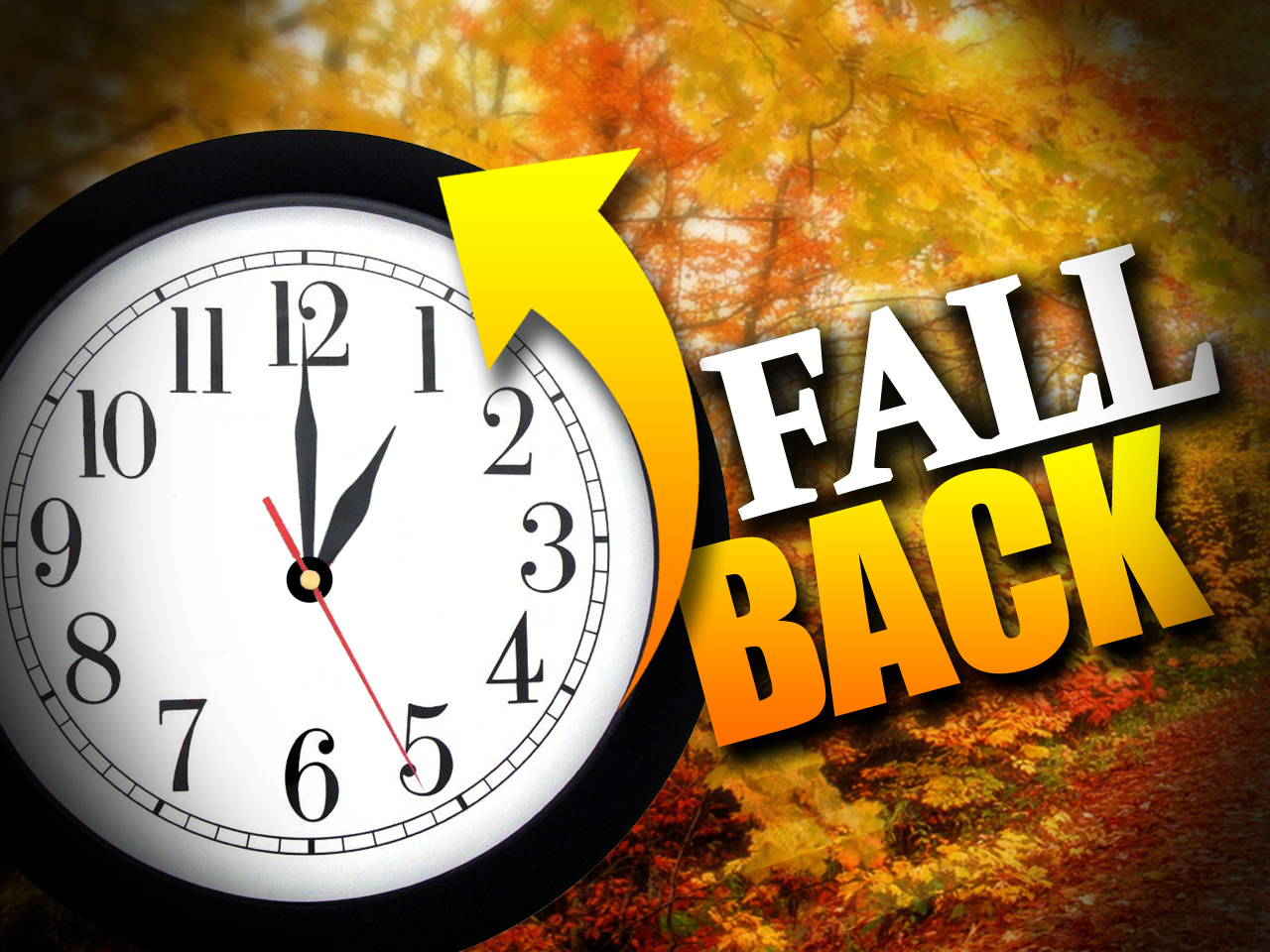

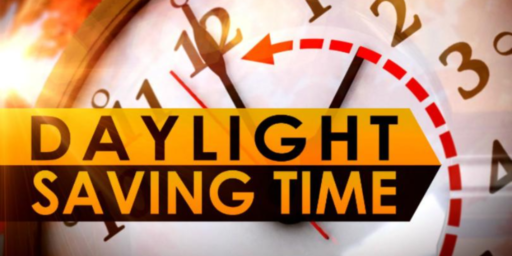
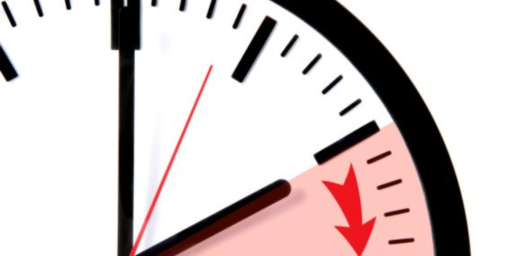
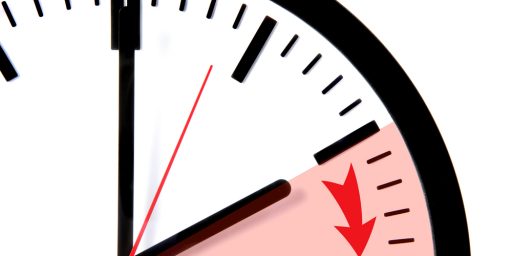
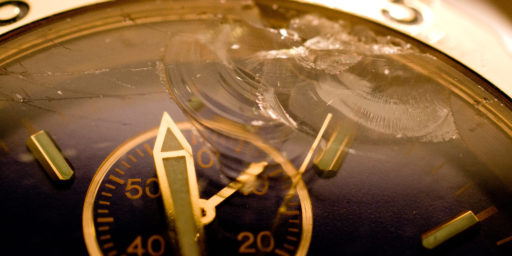

It’s not “Daylight Savings Time”
It’s “Daylight Saving Time”
twice a year… click bait.
Whatever we do, let’s all do it together. Indiana didn’t change clocks until several years ago. They stayed on EST; except for counties near Chicago, Cincinnati, and Louisville that synched with whatever their city did. In the 70’s I checked into a motel in IN on time change eve. The desk clerk handed me a xeroxed sheet, single space typed both sides, with maps and diagrams, to explain what time it would be in Indiana in the morning.
I believe DST was originally suggested by Ben Franklin – as a joke.
The proposal to drop to two time zones is new. And weird.
Comprehensive temporal reform:
1 – Permanent Daylight Savings Time.
2 – Move 40-hour workweeks to 4-day, 10-hours-a-day, Monday-Thursday (so we have 3-day weekends every week).
3 – Switch to a calendar with uniform months (so every month has the same weeks and days), with an extra day or week (I forget how much) at the end of the year (or on leap years; I’m fuzzy on specifics) to balance it all out.
I also think America needs to get on the metric measurement bandwagon and use GSM phones. Also, can we have alcohol vending machines on street corners now like they do in Japan?
(None of that is sarcasm, by the way.)
We don’t need this government meddling in our lives!
The free market should set the time, without government overreach / intervention !
If I want it to be 4:37 in the morning, BY GOD … THAT is the time that it is.
How dare government try to tell me different !
I have no opinion yet on the proposal for two time zones, but I’ve been harping on DST for as long as I remember. Permanent DST would be perfect.
By the way, possibly the stupidest legislation of all time (and that’s saying something) was the few week adjustment to DST we did a while back. Not only did that f**k up every household electronic device that previously understood DST, but it continues to f**k up everything that Europeans and Americans collaborate on, since our DST no longer changes at the same time; I don’t know how many coordinated tests we’ve missed in my business because of this BS. Of course, in the opinion of most Congressmen, the rest of world doesn’t exist so who cares, right?
@rudderpedals:
We don’t really even need time zones. We could just use GMT and then schedule things for however that works out. For me lunch would be at 7pm.
The reason to simplify is that we increasingly synchronize across time zones (and internationally). When I used to do conference calls with Japan and Russia on the line it took more minutes than it should have done to schedule the next meeting.
But two time zones, no DST, of course no penny, and a dollar coin … all good.
If it means I get to sleep an hour longer this Sunday…I’m in.
@Franklin: “Of course, in the opinion of most Congressmen, the rest of world doesn’t exist so who cares, right? ”
Well, on the one hand you have the rest of the world… and on the other, you have the sweet, sweet dollars from the lobbyists for the “outdoor entertaining” industry. You decide who wins.
@Jeremy:
If you want to get crazy … drop the connection to the whole solar year thing. Just use earth’s rotation. Call a year 1000 rotations, divided into 10 months, divided into 10 weeks, divided into 10 days. You can make each day 10 hours of 100 minutes and 100 seconds, if you want.
Then you are ready to go off-planet. Call it a star date, taking ONLY the planetary day with us.
I live in Arizona, so it’s MST all the way!
The folks who think we should have permanent daylight saving time do not have middle or high school kids who take the bus. My kid’s bus picks her up at 7:20 for a 8:00 start of the day. This past week, sunrise was after 7 (daylight saving time), and as the fall proceeds, she would need to walk to the bus in the dark if we kept DST.
On the other hand, if we had permanent standard time, sunrise would be well before 5 near the summer solstice, and those of us who have trouble sleeping after dawn will have their own problems.
So I vote for keeping as is.
It would make life simpler here. I wouldn’t have to try and remember whether my family was 4 or 5 hours off before each call I make. (No daylight savings time in HI)
@Ken:
Yes, you are correct there. I’ve made the appropriate correction
@Ken:
Yes, you are correct there. I’ve made the appropriate correction
The alleged reason for daylight savings time is that it reduces energy consumption – it doesn’t. It has been shown however that it results in people shopping more and latter which means retailers are crazy about it. Is this a good thing? Maybe, maybe not.
Jest leave the clock alone.
No more “Spring forward, Fall back.” I’m tired of that bulls***.
There … I feel marginally better having got that off my chest.
@Moosebreath:
In the absence of a DST, why wouldn’t schools just have different schedules for different seasons?
Call them semesters, quarters, whatever.
As a bonus, you get times suited to your exact latitude and longitude.
@Right Thinking Person:
You missed a golden marketing opportunity by 11 hours and 43 minutes.
http://www.youtube.com/watch?v=8qssWO8NSq0
The clock in my ’72 BMW 2002tii is stopped at 4:20.
So it’s always right….
@Moosebreath:
Well, school just starts too early in the first place, so the solution to that would be to just make school start later in the day.
@john personna:
As someone who spends a good portion of his day having to plan out how to collaborate with people in Texas, Poland, India and New Zealand (my office is in Rhode Island), I very much wish we would all just go to GMT. It would make scheduling meetings so much damned easier if we all just used one time system. I mean who really cares if my waking hours don’t correspond correspond to the “normal” hours you’re used to. Mine would end up being roughly 11 AM – 4 AM. OK, fine. Do people think that we couldn’t just get used to that?
@john personna:
“In the absence of a DST, why wouldn’t schools just have different schedules for different seasons?”
Because they are rigid bureaucracies? Because it would make it difficult to have high school seniors have outside jobs?
@Rafer Janders:
“Well, school just starts too early in the first place, so the solution to that would be to just make school start later in the day.”
That would make it near impossible for school to have 1 bus and 1 bus driver run consecutive routes for the high school, the middle school and the elementary schools (as well as messing up the outside jobs).
@C. Clavin:
Maybe it’s trying to tell you something… and it wants to move to Colorado or Oregon. 🙂
http://en.wikipedia.org/wiki/420_(cannabis_culture)
The idea of going on DST year-round is the height of insanity. If we all want to get up an hour earlier, etc., then let’s just do it. TV networks, businesses, schools, churches, etc. could just shift their schedules up by an hour, without the lunacy of always having our clocks set an hour off.
fwiw, I’ve lived the past two years in China. No DST, and one time zone for the whole country. At first I thought it odd but now I love it. If I schedule a china conference call at 11:00, then that’s it. Beginning of the day for those out west, and just before lunch here in shanghai, but no one gets confused about the time.
DST came about when factories were mostly lit by sunlight. It was adjusted to keep as much daylight as possible on the shift schedules. Later they used energy savings as an excuse. Also, kids standing at bus stops in the dark. Where they came up with the farmer rationale is curious. Farms don’t run on the clock. Animals work on local apparent time. As do plants. On the other hand, creameries getting the receiving out of synch with morning milking was real problem.
I do love that an economist cannot comprehend time, except in her own little 9-5 bubble. Already, across a single time zone, sunrise, sunset, noon, etc. vary by up to 1 hour. Let’s try two hours. Sunrise in NYC at say 7 am, in Chicago at 9 (not precise, just an example).
But there is plenty of research on fatigue that supports the best rest for your 3rd shift worker making it home to a darkened sleeping room before the rising sun awakens them on the drive home. Not to mention, the less stressful awakening by the increasing morning light.
Let’s look at an example. A northern location since winter daylight is shorter, say Seattle. Right now sunrise is a 7:55 PDT. With no change on Dec 21, sunrise would be at 8:55 PDT, vice 7:55 PST. On the upside, sunset would be at 5:20 PDT vice 4:20 PST. And BTW, Seattle is near the middle of the Pacific time zone. So out on the coast, at half an hour or so.
I do find it amusing that people can’t figure out simple integer math to determine time in another place. Yes, it’ tricky. I had to come it at 5 am once in Hawaii to catch people in London at 5 pm for a call. How do you keep the days straight between Australia or China and the US. Have you called someone in Australia on your Monday only to find that the call was suppose to happen yesterday to them?
Here’s a tip. If you have to repeatedly coordinate widely time dispersed locations, pick one fix time, say GMT, to agree to the time and then every one applies their local zone corrector or has one clock set to GMT. And use your zone designators when corresponding about time.
Doug, you can have longer, cold winter mornings or longer, cold winter evenings with the time change, not both. All that is changing is the artificial construct we apply to transit of the sun for our own need for regularity and order. Otherwise, we could just all use Local Apparent Time based on the local apparent noon.
@Rafer Janders: Yes, this is precisely the correct solution for early school. Not to mention the various studies that show how unhealthy it is to be waking up high school kids at 5am every day.
Of course there’s a reason for this (middle school starting earlier than elementary, and high school starting before both), and that is the bus schedule. But since every a–hole parent drives their kid to school nowadays for some reason, perhaps we don’t need buses. (I’m sort of kidding, and yes my kids actually use the bus.)
I enjoy having more daylight in the evenings and I hate when it gets dark earlier like it is going to do now. Keep it like it is.
The main thing is stop all this changing the time back and forth.
“I’m stuck in Folsom Prison…and time keeps draggin’ on” (Cash, at Folsom Prison)
@Ben:
Just do it now. Start at 11 am if that works well for you.
@JKB:
Sunrise at 4:20 am in Seattle sounds appropriate.
I say keep the current system. I like having the extra hours of evening sunlight in the summer and less driving in the dark in the winter.
The only thing I care about is how many weeks of the year there’s enough remaining daylight for my after-work golf league to play 9 holes. DST means more golf, so I’m for it. Besides, that extra hour of sleep is the best birthday present I get, every year.
@Ron Beasley: How soon we forget–the extension of DST was made when my former Senator, the Hon. Slade Gorton (R?, WA) proposed the bill. Reason? IIRC, there was $2 billion to be made by the hotel/resort industry by extending DST and consequently, the time frame in which people took vacation trips.
@Moosebreath: Bingo! You win on the school buses, starting time. The school district that I used to substitute at gave that as the reason for HS/MS starting times on its school bus information handout.
@Jeremy: I would rather let the voters of each state decide the time thing . Metric system? We went through that back in the ’70’s . There was a big push that got no where. It will never happen. The manufacturers said it would cost too much to change their machines and tools over. Alcohol drink machines? How would you control the age of the buyer?
Our town is still dry. Last time there was a vote about allowing the sale of alcoholic beverages, it lost by a huge margin. All of the churches around here are against it; it will never pass. Anyone who wants to buy beer, wine, or liquor has a 6 mile drive. Things don’t change much here.
I remember pleading with members of the Japanese government to NOT start the habit. The lure of lower energy use was too much for them to resist.
It would be much easier if we’re we to stick with DST, if all countries would do it at once. Phone calls and video conferences were enough of a problem when I simply had to deal with US DST, but when you add in the EU and Japan as well….whew.
Yeah, we’re going to have to start using Zulu time, like pilots. (good luck with that. Japan still wasn’t moved over to using the Gregorian calendar. Ditto for Taiwan. One of my cheat sheets I made up for work shows the correspondences between the calendars.)
@Moosebreath:
Just a thought – that schedule is not carved in stone, rather it likely considers the factors you mention. Nothing here keeps us from going full GMT worldwide and have your kids start school at 1600 or 1700.
At 5 PM Sunday afternoon, on the return of standard time, it will be dark at my house in coastal NH. By the solstice the sun will be setting around 3:30. In the summer under DST, the sky begins to brighten around 4:30 AM. I’d just assume that New England was moved to the Atlantic time zone. Thank you.
This could be the birth of The Tea Time Party in the USA! Right here on OTB!
I for one agree two time zones would be more convenient all around. Less confusion.
It needs to be adopted this next year before SPRING FORWARD.
@Tyrell: I just wanted to respond to a couple of points here.
Fair enough; I’m not really taking into account special interest opposition, just what would be ideal. Imperial is inefficient and converting between the two systems is a waste of time, IMO, so I would just like to switch over and get with the rest of the planet.
Who says we need to have a drinking age?
So your locality is stuck in the dark ages and needs a healthy dose of secularism. That says nothing against the general idea of booze vending machines.